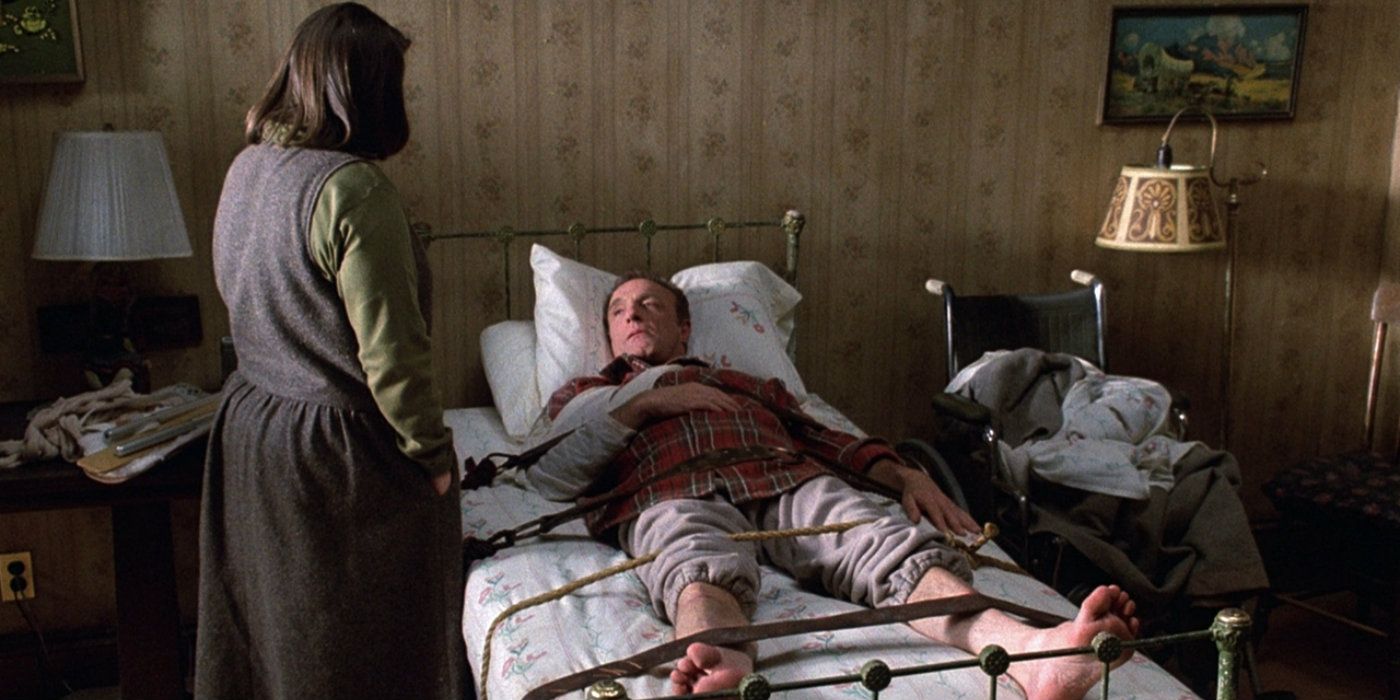Horror, as a genre, is a powerful vehicle for metaphor as it allows people to safely explore their deepest fears with a sense of security around them; Stephen King's Misery weaves themes of addiction into its narrative that are based on the author's own struggles, making it all the more powerful.
If anyone has truly explored the depths of the genre, it is Stephen King. The prolific writer has written so many different types of stories that all explore the darkest aspects of humanity with both realism and fiction. From ancient, cosmic evils like IT to the mysterious, supernatural pull from The Overlook Hotel in The Shining, his content is varied and not so strange in regards to the fictional elements. King has been open about his own struggles with addiction and alcoholism, and has divulged in numerous interviews that he subscribes to the "write what you know" concept that many writers draw from to create different monsters.
James Caan and Kathy Bates deliver incredible performances in the film adaptation of Misery, one that has been ripe for the reboot treatment for years, but the root of the material is best explored in King's novel, not only because it is more nuanced in a textual format, but because it is deeply personal to the author and can be fleshed out further than even the grittiest scenes in the 1990 movie.
Stephen King Turned His Pain Into Power To Create Misery
The set-up for Misery is both simple and iconic. Paul Sheldon (Caan) is kept captive by a woman, Annie Wilkes (Bates), who claims to be the author's "number one fan". She is a fan of his Misery series, but did not like what the author did to her favorite character, as he killed her off in the most recent book. While this is something that is certainly a personal topic for King, who has surely gotten numerous critiques and complaints from fans of his many different stories, the connections go even deeper than what is readily available on the surface. In the past, King has said explicitly that Annie Wilkes represents cocaine and, furthermore, that she is cocaine. This not only highlights his own struggles with addiction, but shows the seductive quality of drugs and how it can make someone feel like they can accomplish something - like writing a novel - even under duress.
While the twisted relationship between Annie and Paul has been described as everything from Stockholm Syndrome to dark romance to downright torture - and it could be argued that all of these are correct, in a way - King's relationship with the character of Annie comes through in Paul's character. Paul humors Annie to write Misery's Return even though he seems to know, with quite a fair amount of certainty, that completing the book will make him no longer useful to her; she'll have the ending she wants, and won't need to keep him around.
Misery also contains parallels to the struggle many writers experience with self-doubt and how they turn to substance abuse to compensate; this is marked by Paul's drinking and addiction to painkillers. The relationship between Annie and Paul changes literal vices for figurative ones. Paul is definitely not in a good situation by his captive state, nor the constant, looming threat of physical harm and even death, but he ends up being more productive even if it's forced. When placed next to Stephen King's prolific ability to produce Misery and other stories, it puts things in perspective that the author has truly given fans a gift, even if at times he did suffer for his art, just as Paul has done throughout the novel.


